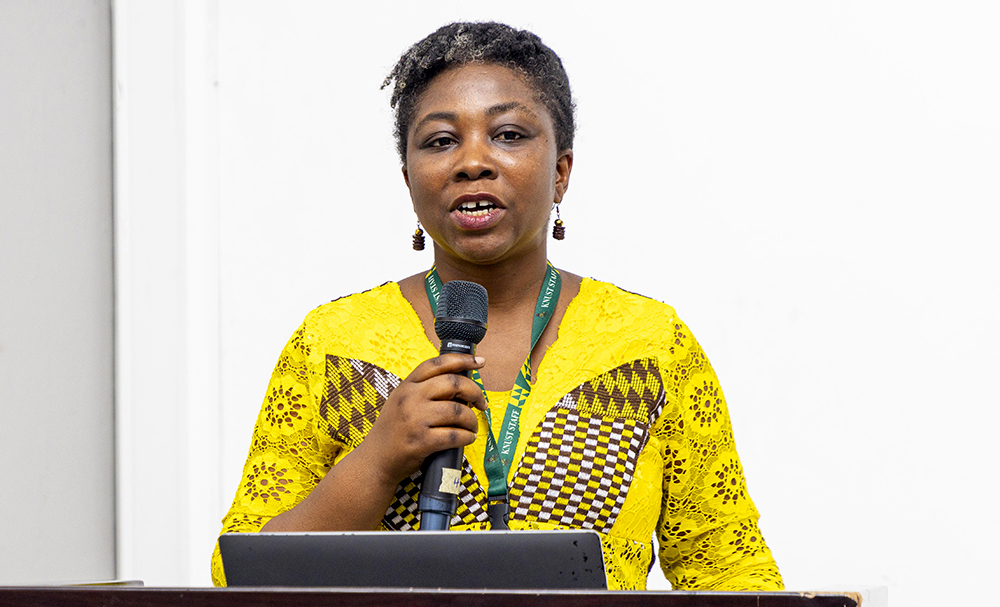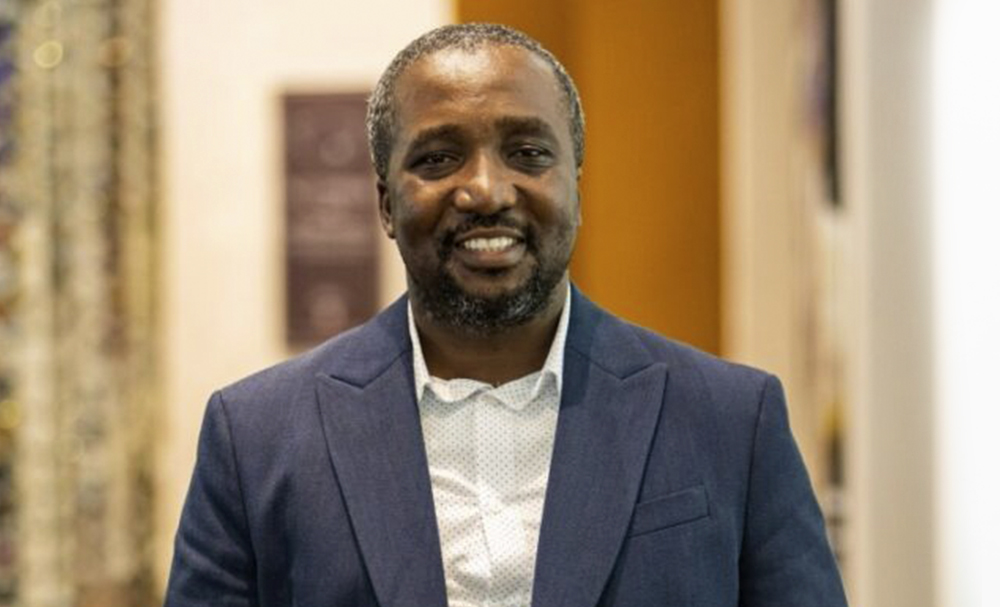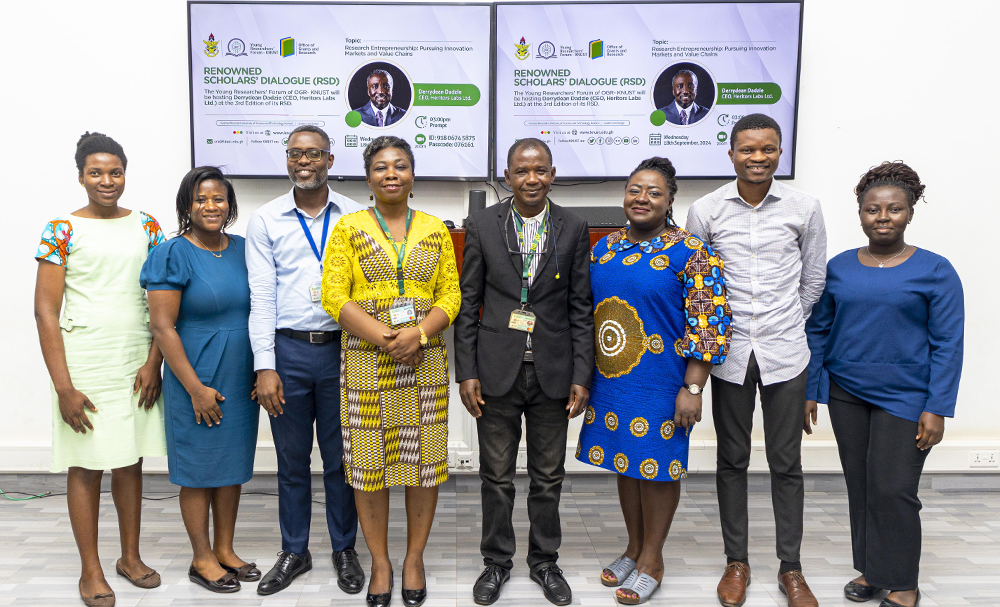The Young Researchers Forum (YRF) of the Office of Grants and Research (OGR) at the Kwame Nkrumah University of Science and Technology (KNUST), Kumasi, has held the third edition of its Renowned Scholar’s Dialogue (RSD). The Forum was held on 18th September, 2024 at the Amonoo-Neizer Teleconference Room and online via Zoom.

In her opening remarks, Professor Marian Asantewaa Nkansah, the Deputy Director in charge of Housing and Welfare at the Directorate of Student Affairs (DoSA) and the Lead of YRF, emphasised the importance of the Forum. She explained that the Forum connects early-career scholars and researchers with accomplished researchers to foster innovation and collaboration in addressing global challenges. She recounted the birth of YRF, which stemmed from the Vice-Chancellor’s research-focused theme and underscored the Forum’s role in shaping the University’s research agenda.
The Director of OGR and Chairperson of YRF, Professor Philip Antwi-Agyei, also expressed his support for the initiative and reaffirmed its role in equipping young researchers with the skills to excel in the evolving research landscape.

Mr. Derrydean Dadzie, CEO of Heritors Labs Limited, delivered the keynote address on “Research Entrepreneurship: Pursuing Innovation Markets and Value Chains.” He shared his entrepreneurial journey, which began with a research project that connected him to key industry players, leading to numerous opportunities.
He discussed his work in pioneering digital solutions across Africa, including Slydepay - a mobile payment platform launched in Ghana and Zimbabwe, and Meridian Post Service (MPS) - which built a robust digital payment infrastructure. He also discussed his leadership in developing projects such as the Paperless Port Initiative and Enterprise Nursing Platforms for major banks like Ghana Commercial Bank (GCB), Agricultural Development Bank (ADB), Fidelity Bank, Stanbic Bank, and Sovereign Bank, which modernised banking operations.
He stressed the vital role of research in driving Africa’s development and discussed how it drives digital solutions and national initiatives that address pressing issues in sectors like finance and logistics. He posed a question, “Why does Africa need to commercialise innovation?” and provided some answers including the need to address pressing societal challenges to boost economic growth and competitiveness and build sustainable ecosystems for long-term progress.
Discussing the changing role of universities in preparing students for the future, Mr. Dadzie stressed the need for academic institutions to focus on addressing future challenges. He added that by adopting a future-oriented curriculum, promoting lifelong learning and skills development, aligning education with industry demands, and emphasising sustainability for global impact, universities can become not just hubs of knowledge, but powerful drivers of innovation. He urged young researchers to be curious, view challenges as opportunities for innovation, and collaborate with others to achieve greater success.

















